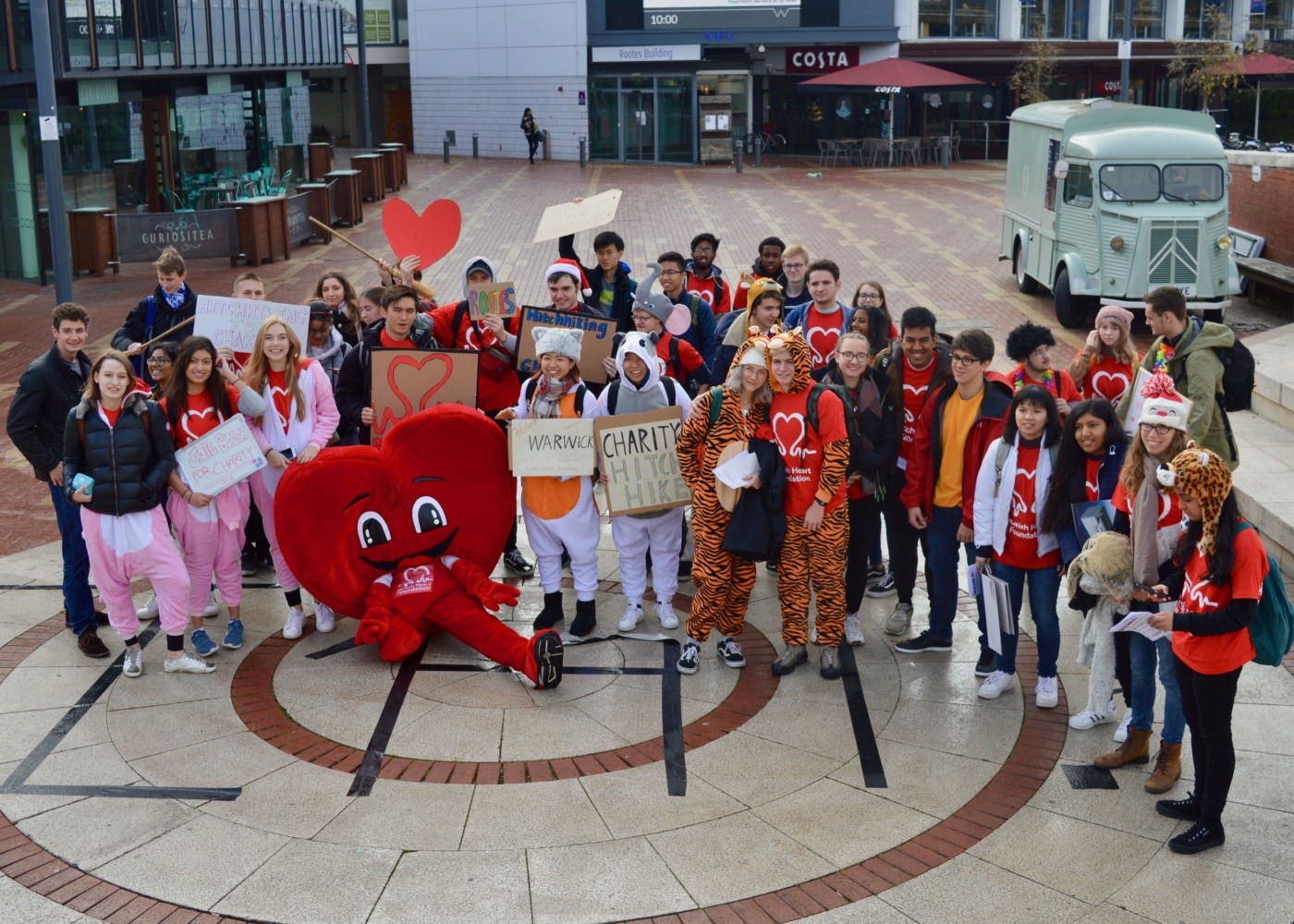An interview with Jailbreak Officer for Warwick RAG
Following the conclusion of this year’s Jailbreak fundraising event, The Boar interviewed Anya Sachdev, Jailbreak Officer for Warwick RAG, on the process of fundraising and how this year’s teams got on.
The annual event, which sees teams of Warwick students attempt to travel as far away from Warwick’s campus as possible in 36 hours, took place over the weekend of 3-4 November.
Overall, £4,516 was raised by the participants during the Jailbreak event for this year’s chosen charity, the British Heart Foundation. The team who managed to raise the most money was Skadoosh with a total of £795.
This year’s winner was team AK, who made it to Lanzarote by travelling 2,775 kilometres. Other teams managed to travel to Malaga, Bratislava and Amsterdam.
The Boar spoke to Anya Sachdev, this year’s Jailbreak Officer for RAG for an in-depth look at 2018’s travelling charity event.
What inspired you to take on the challenge in the first place, and become Jailbreak Officer?
So it was quite a good challenge to take on to raise a lot of money for charity. It would mean a lot to me as well.
It seemed like a cool idea, so that’s why I ran for [the position] during elections. Doing the actual event was great. I got to choose my own charity, so I chose the British Heart Foundation because I’ve got personal reasons behind that.
How did you find the whole fundraising process and how did you go about it?
All the participants have to fundraise. They buy a ticket which is £20, which covers the cost of their insurance, because insurance is quite variable and we don’t know where they’re going.
In terms of the fundraising bit, they have to fundraise £50 before they go. For the money they fundraise on route from that point, half of that they can spend on travel, and the other half has to go towards the British Heart Foundation.
They have to be very explicit with [the fact that half of the money will go to travel] when people are donating to them.
Is there an official procedure? Do they sign anything?
They get given an official letter. They get given a safety booklet, and on the back of that is an official letter from the British Heart Foundation.
The letter explains the things that they’re doing, so that when people question what the fundraisers are doing, they have the letter. But there’s no official way to say 50% of [the money] is going [to charity]; we trust the fundraisers to do that.
In terms of the process of getting as far away as possible, was there a sort of predetermined plan in where you’re going to go, and how they’re going to go about doing it?
They can’t actually have a predetermined route and they can’t plan anything in advance. You can pre-warn businesses and pre-warn family and friends to say “I’m going to be doing this so try and donate at that time” but you can’t book anything beforehand.
When you’re en route, you can’t explicitly ask for money because you haven’t got a permit – that’s against the law. And you can’t bucket collect because you need a permit for that, and if we don’t know where they’re going, we can’t give them permits.
They’d have to go and ask for favours from people, so, “this is what I’m doing, I’m fundraising for British Heart Foundation, could you buy me a train ticket to somewhere?” and that’s how people got to places.
The teams that got the furthest got to Slovakia, Amsterdam, Lanzarote this year. They decided to go to an airport and they kind of pre-warned airlines and – well, this was one team – sat around on standby for ages and because someone had paid for seats on an airline but didn’t turn up, so they got to go.
Smaller teams do better because they only need two seats, because you can’t travel alone. But the biggest size of your team is four people – most teams are two people.
Another team decided to raise loads and loads and loads with donations and favours during the trip, so they got to like £700, and spent £300 of that on train tickets.
Do you know any examples of how people go up to strangers? What do they ask?
It’s quite a grey area because a lot of it is illegal and you can’t really do much on the street, so we tend to advise people to go into businesses, and just go round and be like, “this is what I’m doing, could you give a few donations”.
In businesses areas like Canary Wharf, they tend to give a bit more money. It’s quite hard but a lot of teams manage to do it. We kept texting them every two hours – suddenly, they get a flight, and it’s quite exciting.

Comments
Comments are closed here.